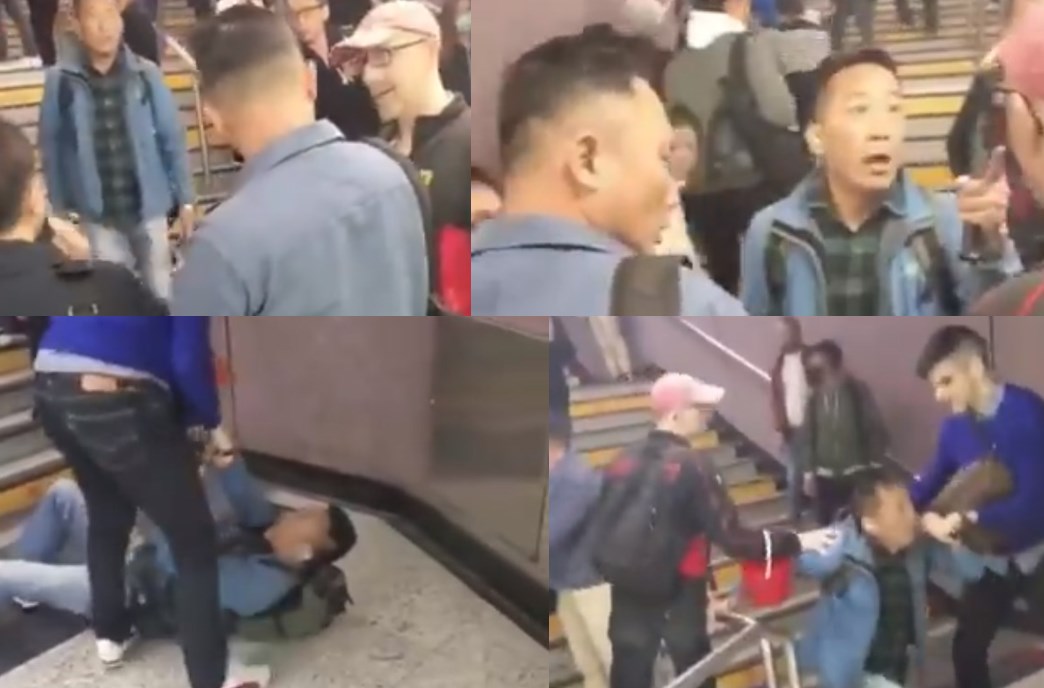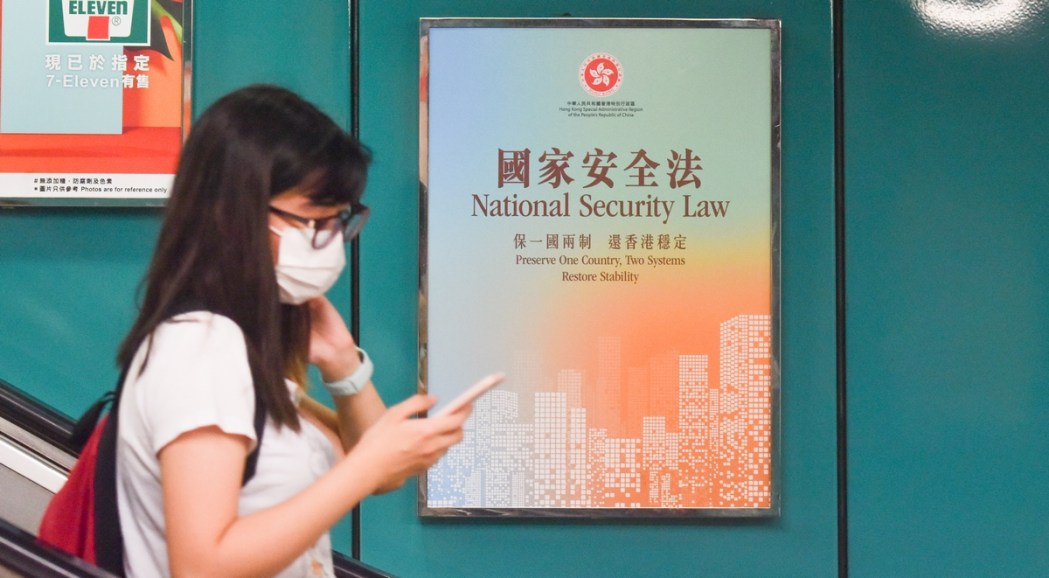Why, asked one of my colleagues, do you not write about politics any more? I had not noticed this, but it is true. The increasing frequency of legal comment is partly due to the disappearance of politics. There is no shortage of legal nonsense; the political nonsense has gone underground.

The proceedings of the Legislative Council have become a mere formality. Officials announce what they have already announced in a recent press conference. There is no debate, no criticism. Some of the more odious pro-government mediocrities take the chance to appear more royalist then the King by calling for something outrageous. Nobody cares; nobody listens.
The situation outside the council is not much better. Critical voices have been jailed or intimidated. Commentators are inhibited by the vagueness of the crimes now being discovered under the national security legislation and the newly exhumed sedition section of the Crimes Ordinance.

Discussion of policy seems pointless because it is no longer clear who decides anything, and on important matters it appears that the decisions are not made by Hong Kong officials or indeed in Hong Kong at all. Writers are of course used to being ignored. But it seems there is no longer a public conversation in which you can join. So why bother?
Meanwhile the deterioration in the legal situation has one saving grace for scribes with itchy pens: it is all still public.
Let us start our tour of the morgue with a visit to the court of magistrate Arthur Lam Hei-wei, presiding over a case in which a member of the public was accused of assaulting a policeman. The defence was, among other things, that the defendant did not know the alleged victim was a cop. Details here.
The interesting public point is Mr Lam’s explanation for his verdict of guilty: “Magistrate Arthur Lam Hei-wei said he was not convinced Bickett did not know Yu was a police officer.” And so another legal landmark goes down the drain.
Burden of proof?
It is not, in the old tradition, up to the defendant in a criminal case to prove anything. The burden of proof is on the prosecution. If the defence is that the defendant did not know something, then it is up to the prosecution to prove beyond reasonable doubt that he did. If magistrate Lam had any doubts on this point then the defence was entitled to the benefit of them, and an acquittal.
The defendant will no doubt appeal (he is a lawyer) but in the meantime was remanded in custody. This will give him some peaceful days to ponder the question which this case raises: was Mr Lam having an off-day, or is it now a general rule that, in magistrates’ courts at least, the defendant is presumed to be guilty?

For a more intricate and technical problem we can turn to the case of Mr Tong Ying-kit, who is accused of driving a motorcycle while flying a flag reading “Free Hong Kong, revolution of our times”, or words to that effect. He eventually collided with three policemen.
Of course Mr Tong’s guilt or innocence is entirely a matter for the jury – I beg your pardon, for the three selected national security judges – hearing the case. The curious point about the prosecution’s case is the way they approached an undoubted problem: what exactly does “Free Hong Kong, revolution of our times” mean?
The meaning of this term has already been announced by the Chief Executive and sundry persons among her minions and the law and order industry. But their opinions are not evidence. The Liaison Office has also condemned the phrase as “implying secession”. But you can’t call them as a witness either.
So it appears, judging by the lavish stream of quotations in the prosecutor’s opening address, that the prosecution is going to rely on expert testimony from Associate Professor Lau Chi-pang, who plies the Powerpoint in the History Department at Lingnan University.
And the thing which bothers me about this arrangement is this: can we regard Professor Lau as – in the legal meaning of the term – an expert?
To start with, he was when recruited only an Associate Prof, a perfectly respectable rank whose modest altitude can be inferred from the fact that I used to be one. Also he is a historian. There is nothing about the study of history (in which I also have a degree) which qualifies a historian to pronounce with authority on the meaning of words in contemporary politics.
The historian may have an opinion, a well-informed opinion even, but it is no better than that of any diligent newspaper reader of normal intelligence.
The academic study of the meaning of words is conducted by linguists and philologists. If the prosecution could not find a friendly one to perform on its behalf, this could be because to the learned eye the meaning of words like “free” and “revolution” is always nebulous and subjective. Words do not have “official” meanings outside of Stalinist states.

It appears also that Prof Lau is not only not an expert, but also not an independent expert. He has been a member of numerous bodies to which the government appoints its friends and supporters. He is a Justice of the Peace, which in Hong Kong is a duty-free honorific to reward faithful “small horses”, and the holder of a Bronze Bauhinia Star, of which you could say much the same.
He has been an invited member of the Heung Yee Kuk, which suggests an allegiance not so much to blue ribbons as to white T-shirts. He is also a non-executive director of a mainland marble mining company.
Clearly Prof Lau is a respectable pillar of the community and the man to turn to if you want learned advice on the origins of local place names. As an authority on what Mr Tong intended by “Free Hong Kong, revolution of our times”, though, he leaves much to be desired.
If the Department of Justice cannot recruit a real expert, then fishing a bogus one out of the government’s list of “friends who can be trusted” is not a good look.
Support HKFP | Policies & Ethics | Error/typo? | Contact Us | Newsletter | Transparency & Annual Report | Apps
| HKFP is an impartial platform & does not necessarily share the views of opinion writers or advertisers. HKFP presents a diversity of views & regularly invites figures across the political spectrum to write for us. Press freedom is guaranteed under the Basic Law, security law, Bill of Rights and Chinese constitution. Opinion pieces aim to point out errors or defects in the government, law or policies, or aim to suggest ideas or alterations via legal means without an intention of hatred, discontent or hostility against the authorities or other communities. |
Help safeguard press freedom & keep HKFP free for all readers by supporting our team

More HKFP OPINION:
HKFP has an impartial stance, transparent funding, and balanced coverage guided by an Ethics Code and Corrections Policy.
Support press freedom & help us surpass 1,000 monthly Patrons: 100% independent, governed by an ethics code & not-for-profit.










